Contents
Guide

By the same author
How to Cheat at Chess
The Penguin Book of Chess Openings
Soft Pawn
The Ultimate Irrelevant Encyclopedia
The Kings of Chess
Chess The Making of the Musical
The Drunken Goldfish and Other Irrelevant Scientific Research
How was it for you, Professor?
The Guinness Book of Chess Grandmasters
Teach Yourself Chess
Teach Yourself Better Chess
The Book of Numbers: The Ultimate Compendium of Facts About Figures
Mr Hartstons Most Excellent Encyclopedia of Useless Information
Forgotten Treasures: A Collection of Well-Loved Poetry (Vols 1, 2 and 3)
The Things That Nobody Knows
Even More Things That Nobody Knows
The Bumper Book of Things That Nobody Knows
Sloths
First published in hardback in Great Britain in 2019
by Atlantic Books, an imprint of Atlantic Books Ltd.
Copyright William Hartston, 2019
The moral right of William Hartston to be identified as the author of this work has been asserted by him in accordance with the Copyright, Designs and Patents Act of 1988.
All rights reserved. No part of this publication may be reproduced, stored in a retrieval system, or transmitted in any form or by any means, electronic, mechanical, photocopying, recording, or otherwise, without the prior permission of both the copyright owner and the above publisher of this book.
1 2 3 4 5 6 7 8 9
A CIP catalogue record for this book is available from the British Library.
Hardback ISBN: 978-1-78649-426-9
E-book ISBN: 978-1-78649-428-3
Designed by carrdesignstudio.com
Illustrations by Nathan Burton
Printed in Great Britain
Atlantic Books
An Imprint of Atlantic Books Ltd
Ormond House
2627 Boswell Street
London
WC1N 3JZ
CONTENTS
ACKNOWLEDGEMENTS
From my childhood to my years as a chess player and mathematician and beyond, I have always held a fascination for the challenge of puzzles and I must express great gratitude to the many people who have fuelled this passion. First came writers such as Lewis Carroll, Henry Dudeney and Sam Loyd, whose books and articles awoke my interest in the recreational side of thinking. More recently, I have been inspired, amused and infuriated by modern puzzlers such as Martin Gardner, Raymond Smullyan, Chris Maslanka, David Bodycombe, Alex Bellos and Prof. David Singmaster, all of whom have unwittingly given me ideas for this book. These, incidentally, are among the best names to look out for if youre looking for the most tantalizing books of puzzles. I am happy to count several of these among my friends and they are the most mentally stimulating company anyone could wish for.
I must also thank all those who have put up with my endless puzzling while I have been collecting puzzles for this book, and my Gogglebox companion Josef Kollar who has been as willing to tantalize me with puzzles as I am with him.
Finally, I should like to thank Cambridge psychology professors Trevor Robbins and Barbara Sahakian for treating me to a splendid breakfast during which they explained how puzzles, quite apart from being fun, may actually be good for you.
PRIMEVAL PUZZLE PRELUDE
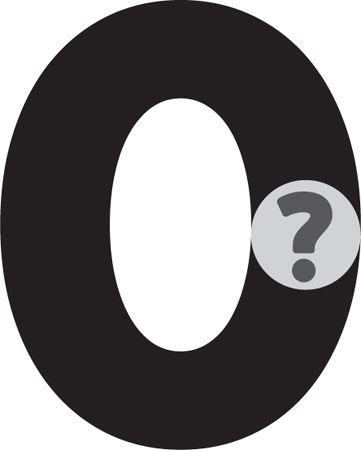
Evolution has developed the brains ability to solve puzzles, and at the same time has produced in our brain a pleasure of solving problems.
Martin Gardner, recreational mathematics writer, interviewed in the New York Times,
19 October 2009
 PUZZLE 1
PUZZLE 1

An infuriating fellow took 120 puzzles to try out on some schoolchildren, which, by a remarkable coincidence, is the number of puzzles for you to solve in this book. The first-year children solved some of these, so he gave the second year a larger number of different puzzles, which they also solved. The third year were given even more, as were the fourth year and the fifth year. Each time, the number of puzzles went up by the same amount and at the end he had used up all his puzzles. The total number given to the three highest years was exactly seven times the number given to the first two years. How many puzzles were given to each year?
The answer to Puzzle 1, and the other 119 numbered puzzles in this book, can be found in the Solutions section at the end of this book.
The language used in Puzzle 1 is different and the scenario modernized, but the puzzle is basically problem number 40 in the Rhind Papyrus, a remarkable ancient Egyptian mathematical manuscript that has a good claim on being the oldest puzzle book. Compiled by a scribe called Ahmes or Ahmose around 1550 BC, but known to have borrowed items from works two or three centuries older, it was bought by the Scottish antiquarian Alexander Henry Rhind in Luxor in 1858 and has been kept in the British Museum since 1865.
Containing 91 mathematical problems, divided into arithmetic, geometry and miscellaneous, the papyrus is essentially a mathematics textbook written in a teasing manner to encourage readers to develop the necessary techniques themselves. A modern reader, of course, would find it easy to solve the puzzle given above by using a little algebra, but the ancient Egyptians had to improvise other methods. The first algebra treatise was written around AD 830 by the medieval Persian mathematician, Muhammad ibn Ms al-Khwrizm. He gave his treatise a long name in Arabic, which included the word al-abr, meaning the reunion of broken parts, and puzzlers and mathematicians have called his method algebra ever since.
Long before Ahmes set brush to papyrus in Luxor, however, that same city, under its ancient name of Thebes, was the setting for a supposedly much older puzzle of Greek myth. According to the ancients, the city lived in terror of the Sphinx, a ferocious creature with the head of a woman and the body of a lion in some versions also the wings of an eagle and the tail of a serpent who had been sent by the gods to punish the Thebans for ancient crimes. The Sphinx was said to kill people who wished to enter Thebes by strangulation (incidentally, the connection between the Sphinx and our similarly named sphincter muscles is that both words are derived from a Greek verb meaning to squeeze or strangle) but, to give her victims a chance, she would first pose them a riddle. If they could not solve it, they were killed.
Nobody ever solved the riddle until Oedipus came along. The riddle the Sphinx asked Oedipus was this: What goes in the morning upon four feet, in the afternoon upon two feet, and in the evening on three feet? Oedipus gave the answer Man, who crawls on all fours in the morning of his life, walks on two legs in the afternoon of his life, and needs a third leg in the form of a walking stick to get around in the evening of his old age. The Sphinx was so annoyed that Oedipus had solved the riddle that she threw herself to her death from a clifftop and Thebes was saved from her terror.

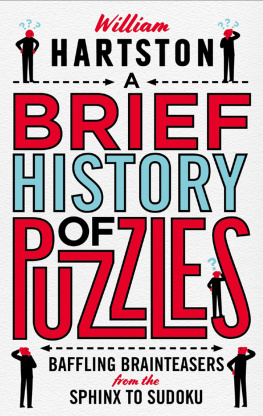
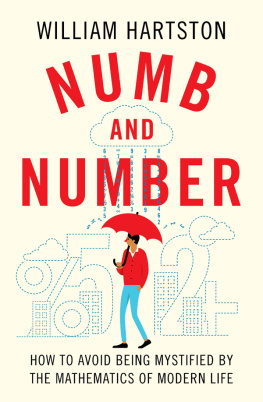
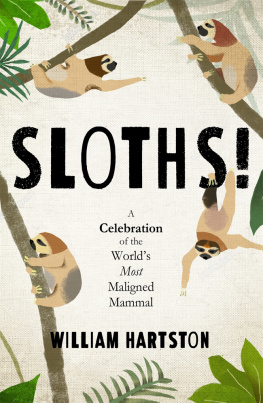
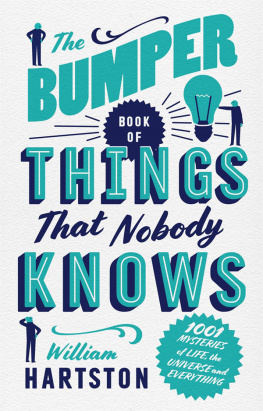

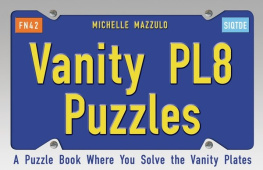
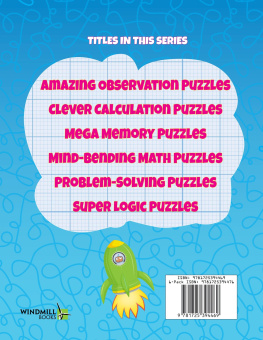

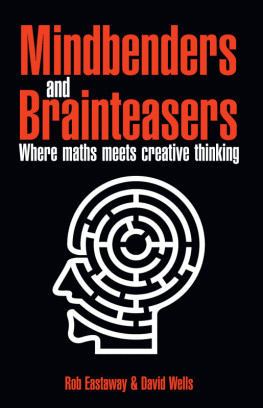
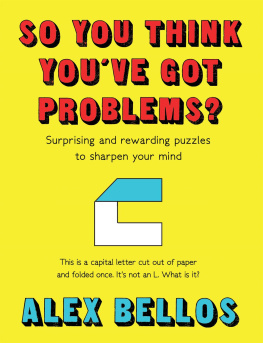
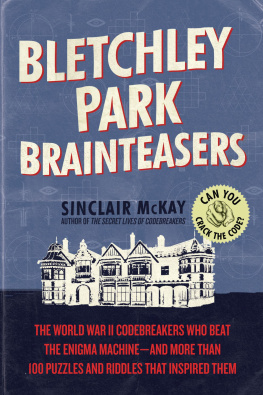
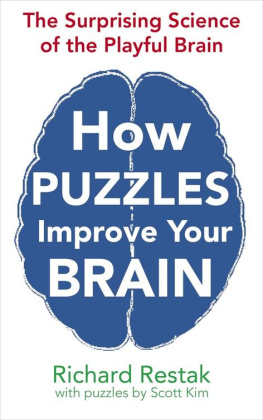




 PUZZLE 1
PUZZLE 1